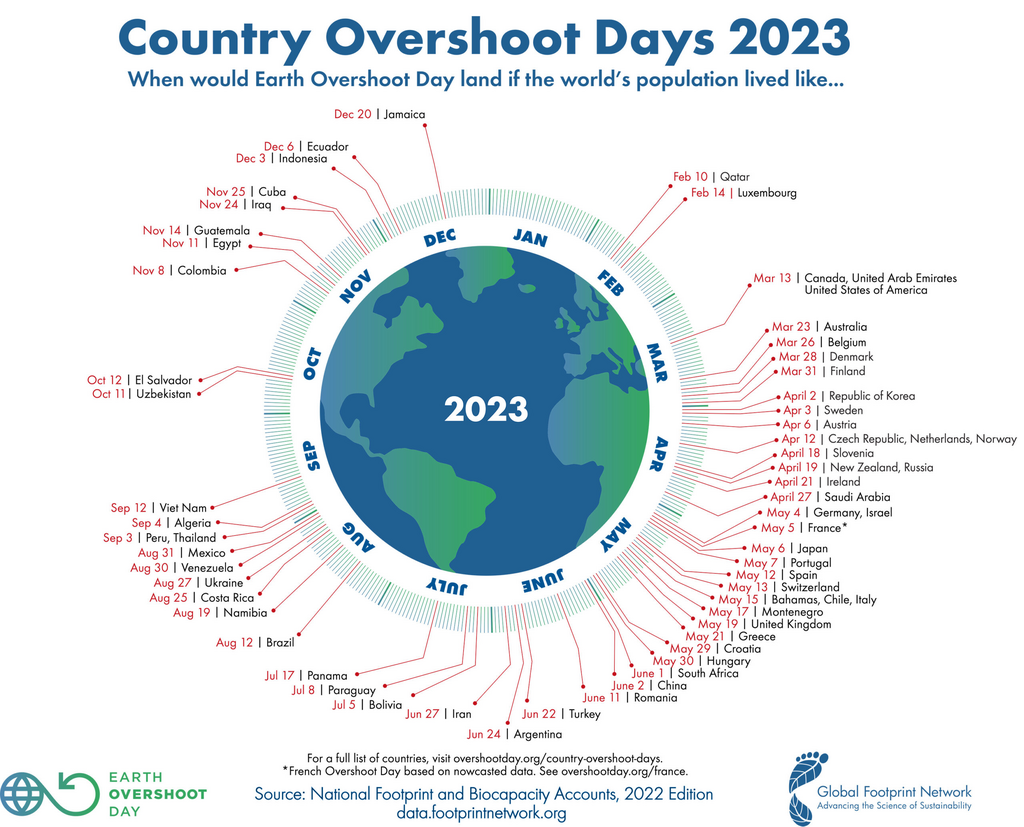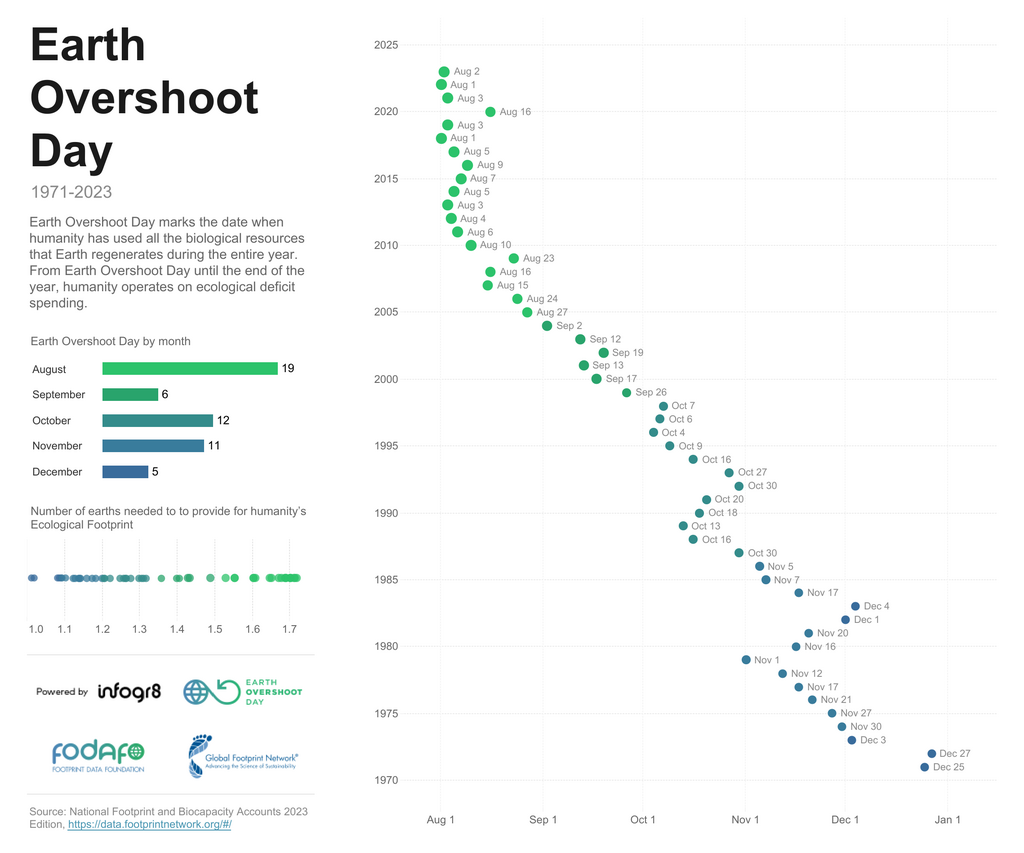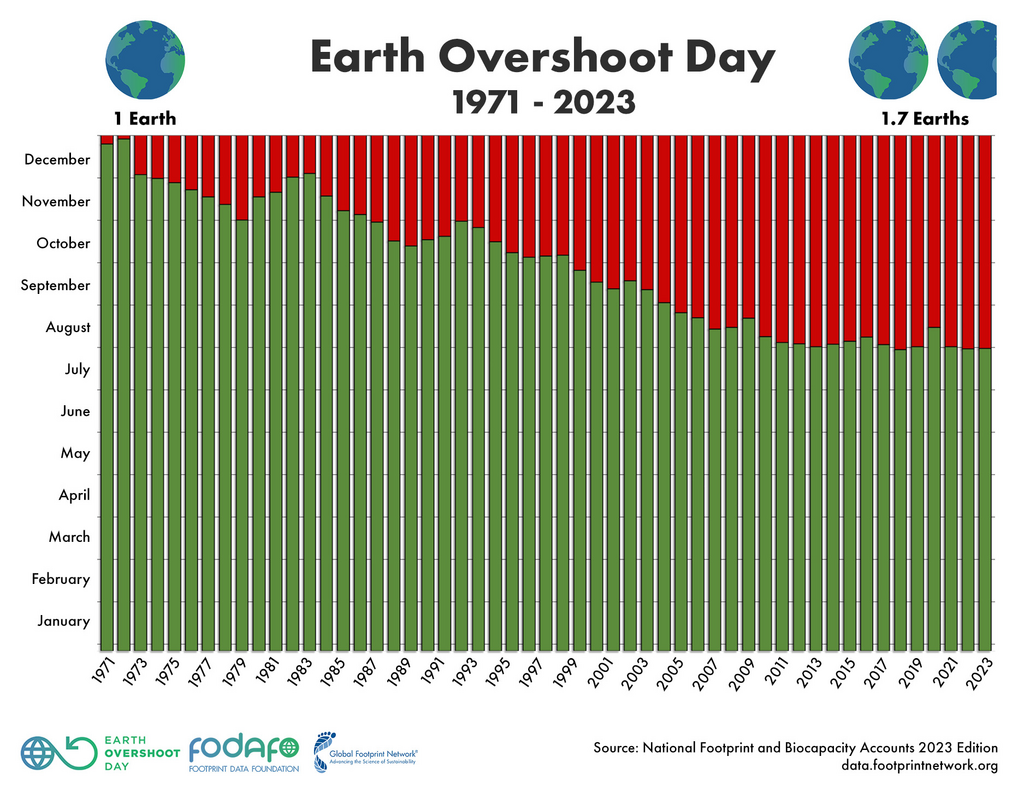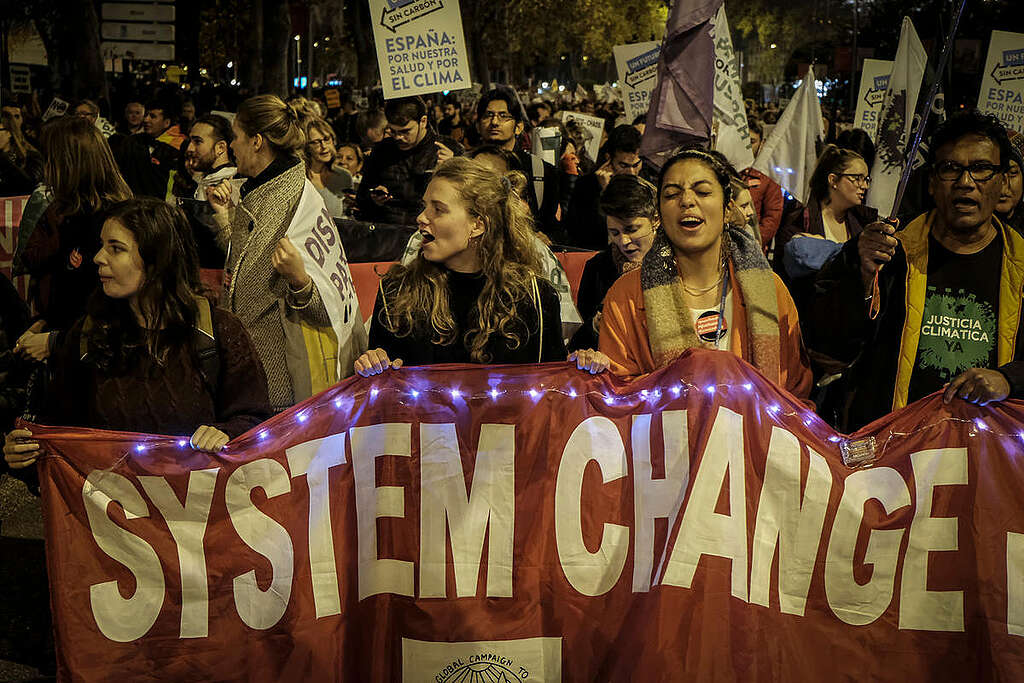August 2nd is Earth Overshoot Day, when the planet groans, burdened by the greed of richer, overconsuming countries and people. According to the Global Footprint Network’s analysis, today marks the point when humanity starts consuming resources beyond the level the planet can replenish in a year.
Overshoot Day has arrived earlier and earlier over the past 50 years. Those of us in wealthier countries must take this as a reminder of our collective responsibility to live lives of greater sufficiency, and to choose governments who will reign in the corporations trampling Earth’s fragile ecosystems and pushing the planet beyond its limits.

Overshooting is not inevitable
According to Global Footprint Network’s rankings, more than a quarter of countries in the world do not overshoot. However, the problem of reducing our ecological footprint is not that we do not have models of sustainable living – it is that most of these countries are characterised by poverty. The richer countries which have been burning fossil fuels to excess have not yet taken the challenging, yet completely doable steps, to live without them. Imagining new ways of living requires some sort of blueprint to guide us.
Uruguay – a story of political will and bold action
One country that offers some ideas for moving forward is Uruguay: a small nation of rolling hills whose experience shows that reducing consumption of the Earth’s resources does not mean a lower standard of living. While there is no ‘one size fits all’ template for sustainability, Uruguay shows that a country’s leaders can be intentional in reducing its ecological footprint.

Looking at its recent past, Uruguay highlights the importance of political will and bold action in achieving sustainability and shows that it can go hand in hand with both economic security for the many and social justice. Uruguay has one of the lowest levels of income inequality in Latin America and an almost complete absence of extreme poverty. The government has invested heavily in education, healthcare, a minimum wage indexed to inflation, and a progressive tax system that redistributes wealth from the rich to the poor – all of which have helped to reduce poverty and inequality.
This focus on social welfare has helped to create a more stable and resilient society, with its people less vulnerable to economic shocks and more likely to weather downturns. It’s no surprise that Uruguay is one of the happiest countries in Latin America, with a strong social safety net and a high standard of living.
Achieving energy independence
Uruguay reduced its dependence on fossil fuels by creating a renewable energy sector that makes it a world leader on this front. In 2008, Uruguay embarked on a countrywide transition to renewable power that today has created one of the world’s greenest electricity grids, powered by 98% renewable energy, mostly hydropower and wind. This commitment to clean energy has created new jobs and economic opportunities, as Uruguay has become a leader in renewable energy technology and exports.

Dangers of backtracking
While Uruguay’s leaders have made some good choices over recent decades, not all of its government’s decisions are beyond reproach. Facing the worst water crisis in its history, drought compounded by mismanagement and uncontrolled growth of urban areas has reportedly resulted in the depletion of the main reserve that supplies the capital, Montevideo. Activists have also criticised the authorities for prioritising water for transnationals and agribusiness at the expense of its own citizens, including plans for a Google data centre that is projected to use millions of litres of water.
Also of deep concern are Uruguay’s plans to expand deepwater oil and gas exploration after recently discovering sizable new reserves off its shores. Uruguay now has its sights on expanding production and consumption via trade and is pushing for the destructive EU-Mercosur deal.
Prioritising well-being
We are at a crossroads in human history. Those of us living in countries that had an overshoot day long before today can indeed live well without such extreme overconsumption. We can push our governments to follow the example of countries like Uruguay and implement policies that prioritise collective well-being.
For Uruguay’s leaders, businesspeople, and workers, the green transition did not just represent a shift to renewables, it also signalled a shift in their own mindset. Rather than contemplate the paralysing crises of the future, they could approach them as everyday problems with people-centred solutions. Let’s use these positive examples to get rid of Overshoot Day completely.

We’re asking governments to put wellbeing at the top of the agenda. Join our global movement and let’s demand wellbeing for all!
Attila Kulcsar is communications lead with Greenpeace’s Money for Change campaign.
